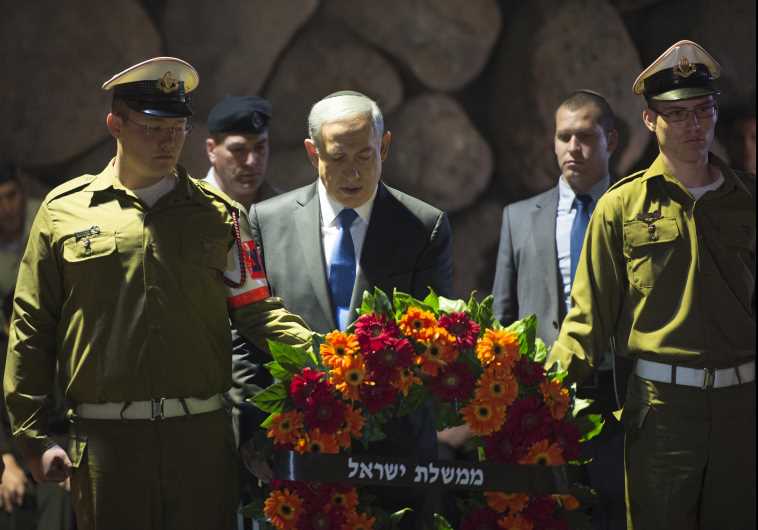Struggle to maintain human spirit to be theme of Holocaust Remembrance Day
Six torches will be lit to commemorate the six million Jews murdered by the Nazi regime during the Holocaust.
 Netanyahu lays wreath during Holocaust Remembrance Day Ceremony at Yad Vashem in Jerusalem(photo credit: AMOS BEN GERSHOM, GPO)
Netanyahu lays wreath during Holocaust Remembrance Day Ceremony at Yad Vashem in Jerusalem(photo credit: AMOS BEN GERSHOM, GPO)